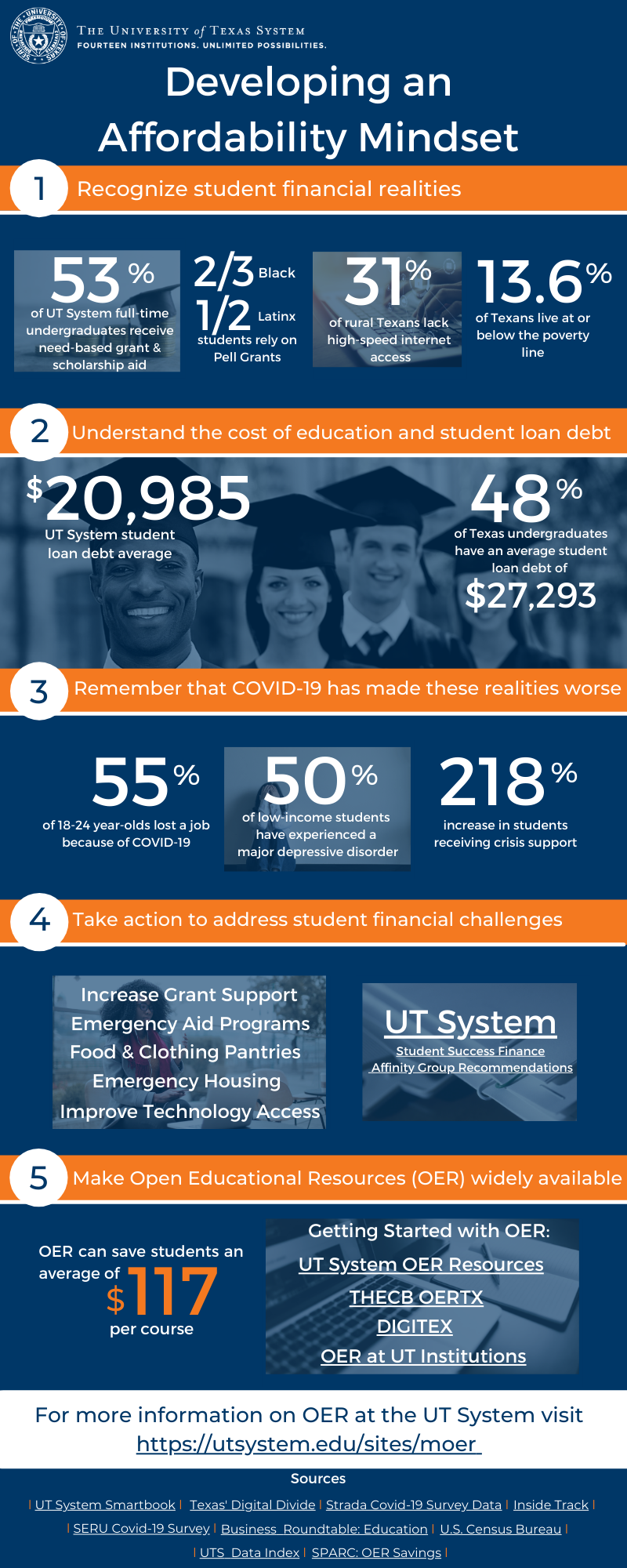Recommendations for Developing an Affordability Mindset
Accelerating Momentum, the report of the Affordable Learning Accelerator Task Force includes the recommendation that "the UT System and institutions should adopt an Affordability Mindset across the UT System."
Why is this important?
- Understanding and meeting the financial needs of students is a shared responsibility by all members of the university community with roles and actions for students, faculty, staff, and institutional and System leadership.
- Affordability for students takes place across a continuum determined by multiple factors, among them, tuition and fees; costs of textbooks and other course materials; required technology; food, housing, and transportation; family income; grants and financial aid; and loans and debt.
- Tuition and fees represent 35-40% of the cost of attendance at UT System institutions.
-
Financial need is one of the top reasons cited for why students leave the university and do not complete their degrees.
Affordability is a priority focus area for the UT System Student Advisory Council, and it has served in a leadership role for the development of annual recommendations to the Chancellor.


